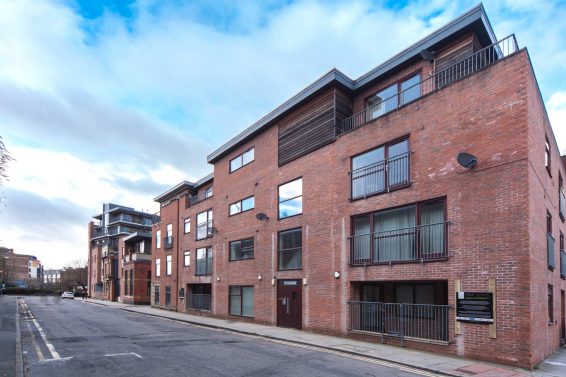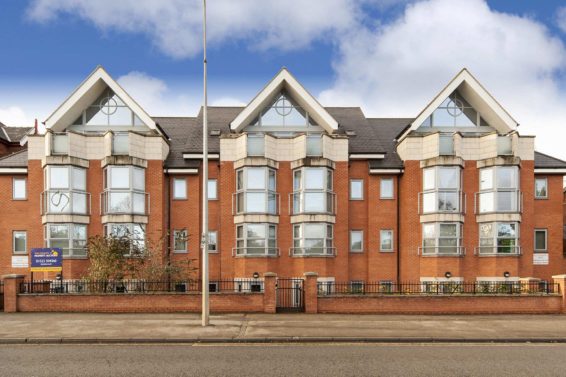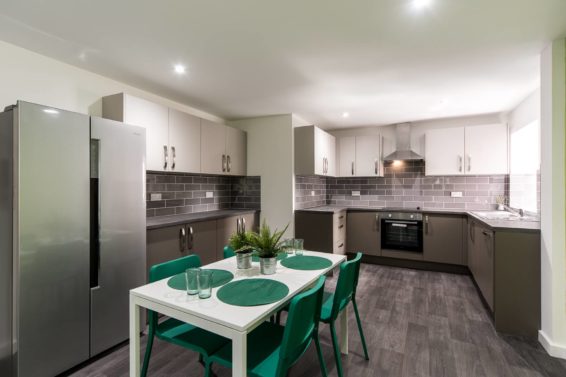
There are many different strategies you can use to maximise property investment returns. These include selecting a specific strategic location, an opportunistic purchase based on price and prospects, long-term rental income streams and a diversified property portfolio across an array of different sectors. Whether you choose one individual strategy or mix-and-match to reflect your investment profile there is potential for long-term capital appreciation and strong income streams.
1. Strategic location selection
Whatever property strategy you undertake, location, location, location is obviously very important. In this scenario it is vital to review the economic prospects for the region, while also maintaining one eye on the national picture. There are other issues to take into consideration such as transport links, employment markets and, for many cities in the Midlands and England, further education facilities.

Prosperous areas such as Manchester not only have a significant student population but are also home to some top employers. Recently, the BBC relocated to MediaCityUK in Salford (on the outskirts of Manchester city centre). In this scenario it is not difficult to see how many businesses the BBC would attract to the area, prompting significant external investment. Young professionals, students and a blossoming local employment market have increased demand for individual living accommodation. This type of accommodation is very often below the stamp duty land tax threshold, thereby reducing purchase costs, fuelling demand and improving growth prospects for the future.
There are many areas of the Midlands and the North of England offering this type of scenario and property investors are extremely active in these regions. Although landlords are subject to a 3% surcharge on buy-to-let properties, there are ways to get around this by investing via SPVs.
2. Opportunistic / value add
Due to an array of different issues such as distressed sellers, legal issues and refurbishment costs, it is possible to acquire properties at prices significantly discounted from the perceived market value. Those who acquire such opportunistic properties are often referred to as “flippers” because they tend to buy the properties, often undertaking minimal refurbishment/redevelopment, and sell them on quickly for a significant profit. Many people fail to realise but so-called “flippers” inject a significant element of liquidity into local property markets, oiling the wheels of homeownership.
The term “flippers” is a little derogatory because it is not as simple as that. There is a skill in identifying properties available at a discounted price, skill in managing refurbishment/redevelopments and then being able to sell them on. In recent times we have seen many local authorities selling assets in need of redevelopment at attractive prices. This opportunistic/added value market is one where cash is king and the ability to close a deal relatively quickly can make or break a transaction.

There may also be opportunities to acquire properties at a discounted price and turn them into rental income cash cows. However, many investors prefer a relatively quick resale – raising funds for their next venture. Issues such as Brexit have caused confusion and volatility in some regional property markets, creating a perfect environment for those looking for their next opportunistic investment.
3. Income-focused residential
Even though the Bank of England has signalled UK base rates will likely move higher in the short to medium term, we are still in a relatively low interest rate environment. As a consequence, income focused residential investments are proving to be extremely popular. If you compare base rates, savings rates and rental yields, there is only one winner: rental yields.
There are a number of factors to consider when looking towards the rental market. Whatever happens after Brexit, the UK population will continue to grow, newbuilds are running literally hundreds of thousands of units behind demand and first-time buyers are struggling to climb onto the property ladder, which is increasing demand for private rental accommodation. When you also consider the fact that social housing in the UK has been significantly reduced due to the “right to buy” scheme which began in the 1980s, this is yet another reason to consider the private rental market.

There are also significant economies of scale when acquiring more than one property or perhaps a block of properties. Many investors prefer to acquire freehold accommodation allowing them to gain full control and avoid complications and cost increases further down the line. Despite an increase in buy to let related taxes it is inevitable that demand for private rental properties will increase in the short, medium and longer term. Recent governments have failed to deliver on affordable accommodation promises and a lack of skilled workers in the building industry will also create a constant drag on new build numbers.
4. Diversify across sectors
There are some investors comfortable in focusing on certain areas of the market, certain types of property and certain strategies. For many long-term property investors, a diversified portfolio works best, reducing the wide fluctuations when focusing on one particular element of the market. The UK market offers of a variety of properties from traditional family homes to HMOs, from business premises to small business centres as well as purpose-built student accommodation. The range of rental yields and prospects for capital appreciation allow investors to create a mix-and-match scenario to perfectly reflect their own individual investment strategy.

One area which has attracted significant interest in recent times is purpose-built student accommodation. While many people automatically assume this is the low quality high-volume accommodation of years gone by, this is certainly not the case. Purpose-built student accommodation today offers not only private sleeping facilities but also a raft of communal areas and additional services such as gyms. Managed correctly, student accommodation can create extremely high rental yields with many of the add-on services increasing income.
A growing number of investors now see a balanced/diversified property portfolio as their pension fund of the future. Long-term capital appreciation coupled with a strong rental income stream offers the best of both worlds for many investors. Crowdfunding property investment sites have grown increasingly popular in recent times, as they allow investors to access diversification at the click of a button.


